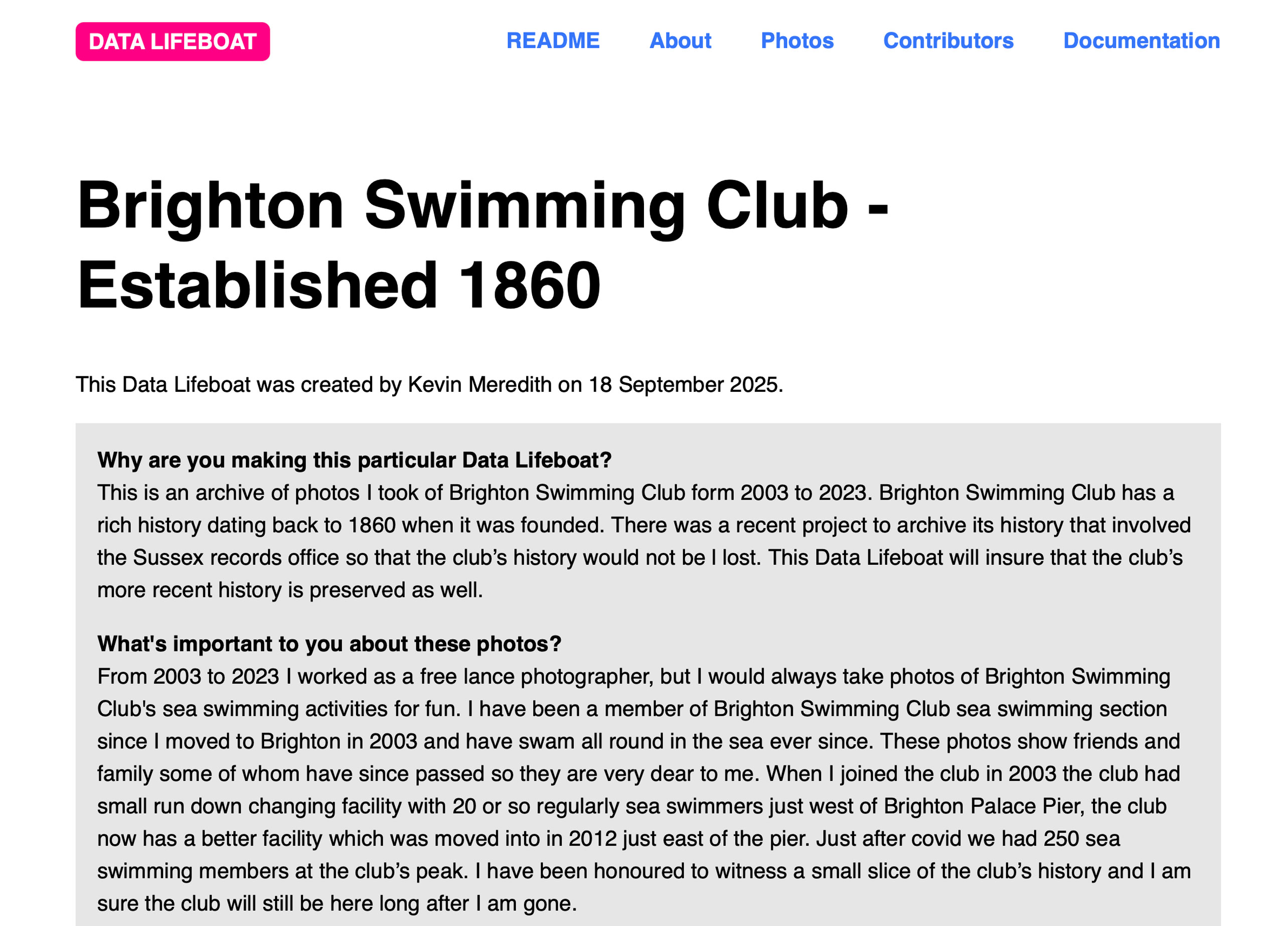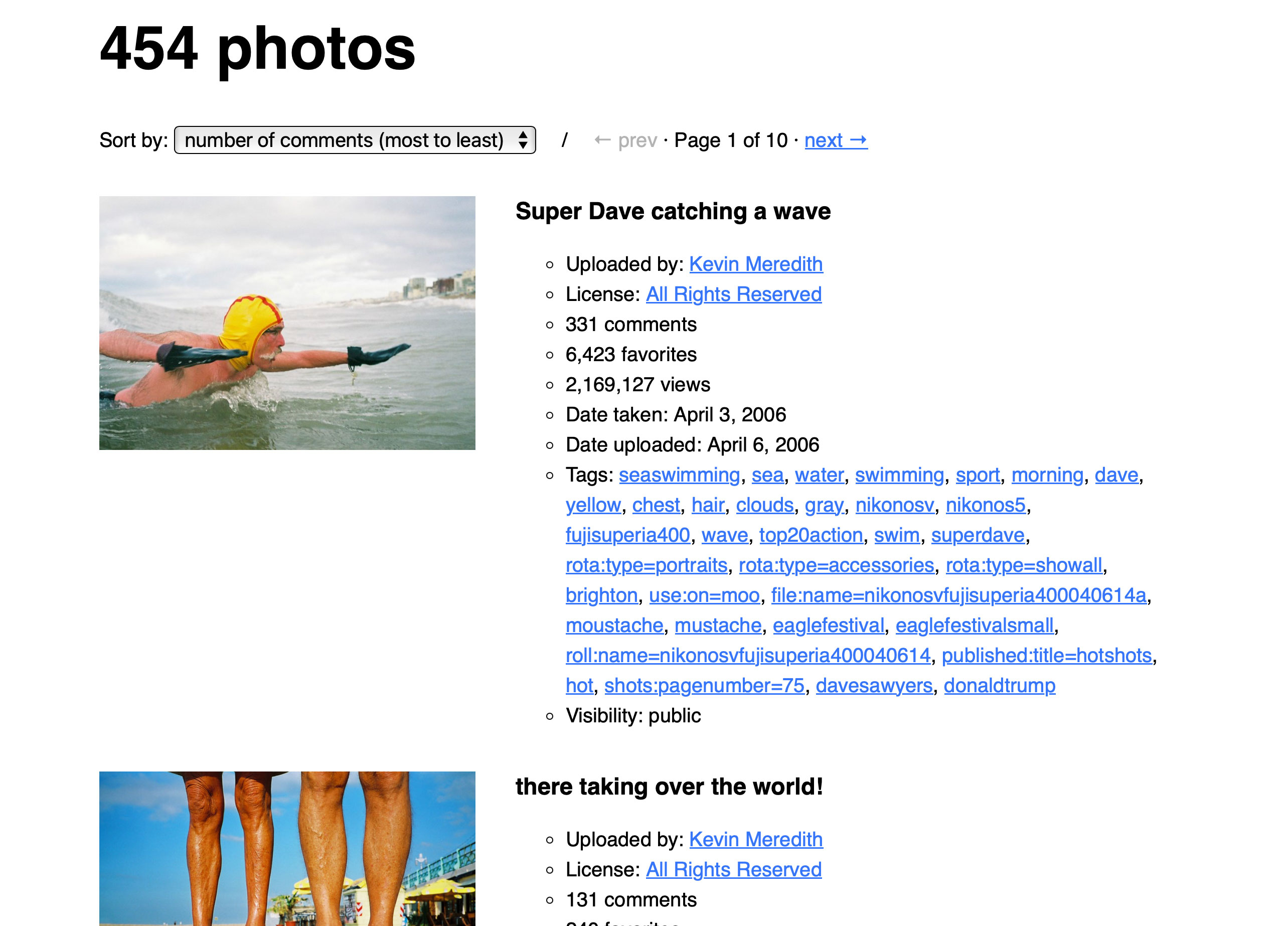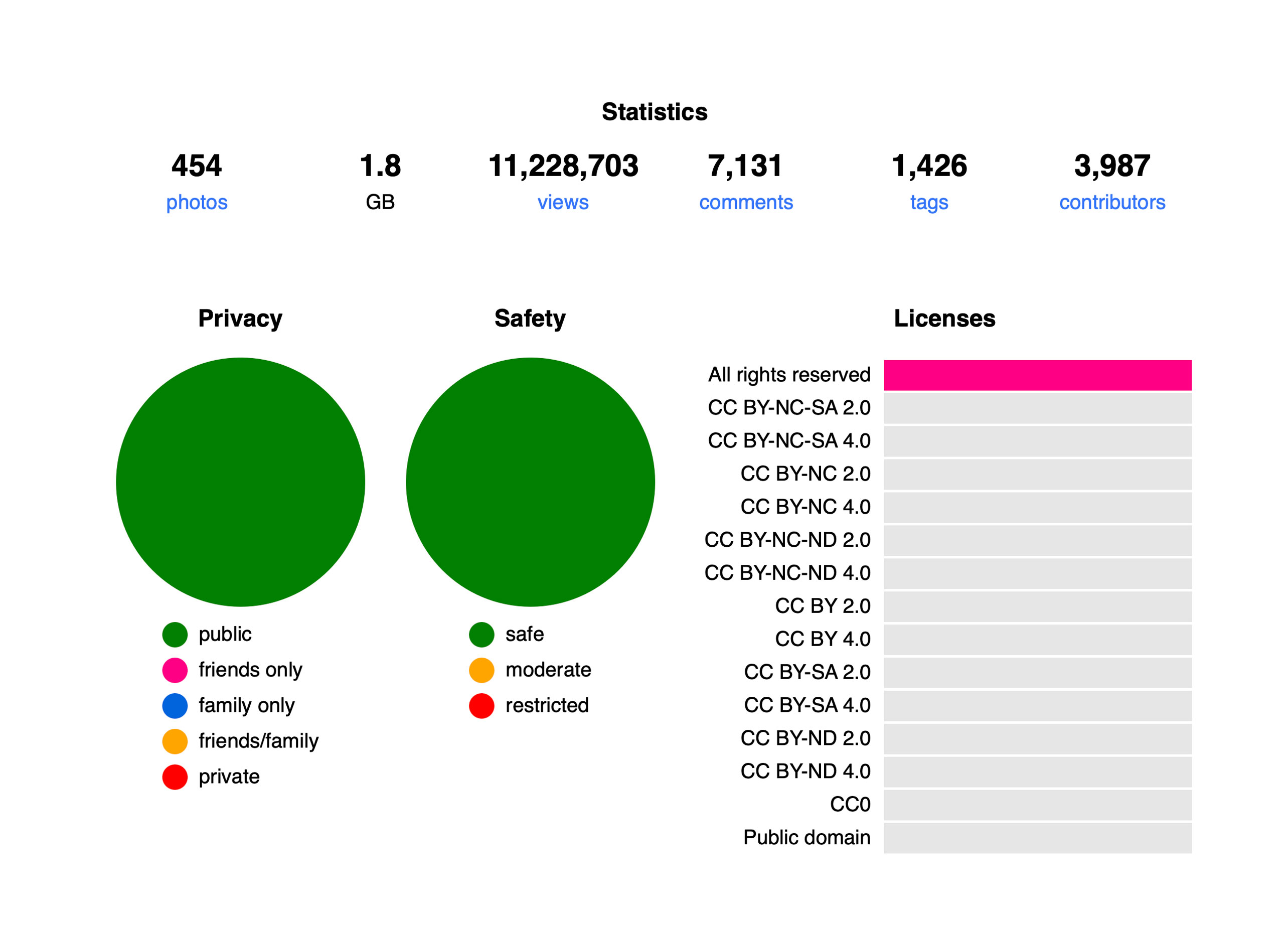After 21 years, Flickr continues to grow as a flourishing community of photographers. Part of what makes Flickr so special is that once a photo is uploaded to Flickr, it becomes more than just a photo. It sparks conversations, builds relationships, and creates lasting memories. Flickr members have gathered at real world photo meetups, made dear friends, and we even know of a few people who met through Flickr and ended up getting married.
Protecting precious memories
At the Flickr Foundation we think of Flickr as a living, visual collection: a rich cross-section of humanity, full of diverse voices and interests on just about every subject. Since Flickr’s launch, we have seen other social media platforms rise and fall, taking billions of irreplaceable memories with them. Flickr isn’t at any risk, but we think it’s responsible to consider the future of the valuable memories held by Flickr while we’re in calm seas.
Funded by the National Endowment for the Humanities, Mellon Foundation, Filecoin Foundation for the Decentralized Web, and Stewart Butterfield, we’ve engaged in co-design with renowned cultural organizations like The National Archives (UK) and the Library of Congress to understand the complexities of rigorous archival practice, particularly of born-digital material (like Flickr photos). This work, along with published research about how to describe networked social objects (like Flickr photos), and a bunch of prototyping and iterating has resulted in the launch development of our latest Flickr archiving tool: Data Lifeboat.
Introducing Data Lifeboat
Data Lifeboat is a first-of-its kind flexible archiving tool that allows you to safely and ethically preserve a selection of Flickr photos with their technical metadata (like the stuff in EXIF) and “social metadata” (like comments, faves, location, tags… everything Flickr members add to a photo once it’s published in Flickr). This archive is a downloadable zip file that can be stored locally, shared with friends, passed on to relatives, or maybe even donated to a cultural institution! It’s yours to save and use as you’d like.
Core Principles of Data Lifeboat
There are key differences between a Data Lifeboat archive and a typical social media backup:
1. Usability – A Flickr archive made using Data Lifeboat can be opened in any web browser to view and navigate as a self-contained website. We’ve designed this package using basic HTML and JavaScript ensuring archives will be usable and enjoyable for decades to come. We also worked with preservation experts to ensure they are compatible with long-term digital preservation requirements.
2. Consent – Data Lifeboat is a powerful archiving tool designed with ethical archiving principles in mind. It has the notion of consent built in, respects all existing licensing requirements, and prompts the creator to write a README to document exactly why that archive was made and how it can be used for future viewers.
3. Versatility – Anyone with a Flickr account can create a Flickr archive using Data Lifeboat. You can also include other peoples’ photos (with consent, of course) to save practically anything on Flickr: a small collection of photos taken by you and your friends, your documentary photography of your local swimming club, a collective history of your hometown, and plenty of things we haven’t even thought of yet!



Images from the Flickr archive “Brighton Swimming Club – Established 1860” made by photographer and Flickr member Kevin Meredith @lomokev
Data Lifeboat Pricing
Yes, making a Flickr archive using Data Lifeboat costs money, and we’ve worked hard to make our pricing affordable. Here’s how it works: If you’re archiving your own account, you’ll pay a per-photo price that’s tiered to scale with big accounts. If you’re archiving other people’s photos, we politely ask you to pay a $5 deposit before you ask consent (via Flickr comments), and you’ll pay the difference based on how big the resulting archive will be once all the responses have come back. You can try our price calculator to see how much it’ll cost.
The Flickr Foundation is a non-profit charitable foundation with a very small team, so creating your own Flickr archive using Data Lifeboat is a great way to support our work and mission to keep Flickr pictures visible for 100 years! And if you really like it please consider making a donation. It’s scary out there for non-profits at the moment.
Ready to make a Data Lifeboat?
Try Data Lifeboat today, and if you need some inspiration, visit our growing showcase of examples to see what you get.
